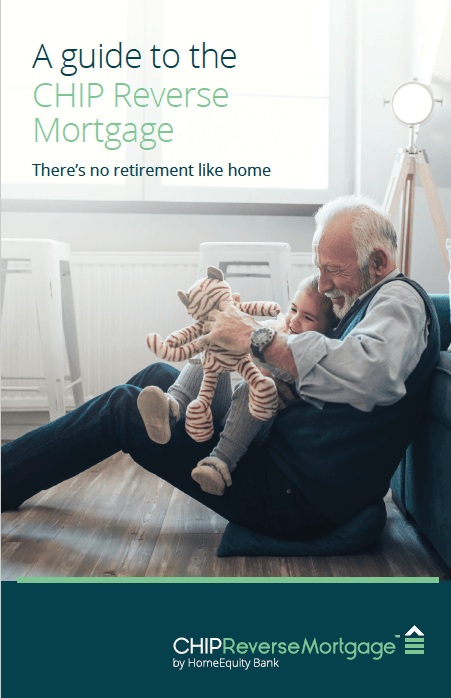
I'M A CERTIFIED REVERSE MORTGAGE SPECIALIST
Let's see if a reverse mortgage is right for you.
CONTACT METHE REVERSE MORTGAGE PROCESS
In 4 Easy Steps
STEP ONE
Decide
Decide how much of your home equity you would like to access without scrutiny of your income, credit, or health.
STEP TWO
Consult
Contact me to find out how much you qualify for. I will personally walk you through the entire process from start to finish.
STEP THREE
Receive
Receive the money you need in one lump sum or multiple instalments. Spend the money however you like!
FREE CHIP REVERSE MORTGAGE GUIDE
If you’re wondering if a reverse mortgage is review, this ebook is for you. Go ahead and let me know who you are, by completing the form, and I will be in touch. No spam, and no funny business, unless of course you like funny business, then I'll see what can be done!
Take a moment to provide your name and email and you can download your free CHIP Reverse Mortgage Guide.
Contact Us

REVERSE MORTGAGE ARTICLES

Need for retirement planning in Canada. As more and more Canadians are entering their golden years and heading into retirement, it is important to remember that seniors in this country are eligible for many benefits, services and programs on a federal, provincial and municipal level. Once you arrive at the age of 65, you are legally a senior in Canada and are privy to the Government of Canada’s website dedicated to information for seniors. These websites are also a great tool to assist Canadians with retirement planning. Government Of Canada – Website for Seniors

In an effort to draw awareness to the growing need for reverse mortgages in Canada, HomEquity Bank is releasing a series of articles about reverse mortgages in Canada to elaborate on how the product can benefit Canadian Seniors and clear up some common misconceptions. Here, to kick off this series of articles is our feature article on what is a CHIP Reverse Mortgage and what are the benefits? Unlike our American neighbours, when Canadians explore the option of a reverse mortgage, there is only one provider, HomEquity Bank. In America, there are many companies who offer a reverse mortgage and as a consumer, on top of familiarizing yourself with the concept, you also have to research the best interest rates, read the fine print and compare them to a reverse mortgage provider that best caters to your situation. In Canada, it is much easier since, HomEquity Bank, is the only provider of Reverse Mortgages. However, Canadians are encouraged to familiarize themselves with the concept of a reverse mortgage and understand how the product works in order to determine if it is the best option for their financial situation. One way to do this is to get a free estimate of how much money you can get with a CHIP Reverse Mortgage. This estimate is based on your profile and home condition. You can also find out some of the frequently asked questions about reverse mortgages in Canada. To get you started in your understanding of a Reverse Mortgage in Canada , below is some basic information about the CHIP Reverse Mortgage. What is CHIP? CHIP is the name of HomEquity Banks’ reverse mortgage product. It is a loan secured against the value of your home. It allows you to unlock up to 55% of the value of your home without having to sell or move. The money you receive is tax-free and you can use it towards any of your personal needs such as: Pay off debts/Consolidate debt Home renovations and repairs Unexpected expenses (medical, emergency) Financially aid your children/grandchildren Improve or maintain your standard of living Pay for a vacation or a special purchase Who is eligible for CHIP in Canada? Canadian Homeowner (own your home) Your home is your primary residence Age 55 or older Why CHIP (benefits)? No Health Checks There are loans that require a health check to ensure that the recipient(s) (of the loan) are in good health to pay off the loan. With a reverse mortgage, since there are no regular monthly payments required until the homeowner(s) move, sell or pass away, health checks are not a requirement. Keep Your Home And Maintain Ownership Of Your Property Many people often ask whether the property title of the home gets transferred to the bank once the reverse mortgage is approved. The bank simply loans you a percentage of the value of your home in tax-free cash, but the title and ownership of the property remains yours. However, this means you must continue to pay your property taxes and maintain your home so that it remains in good condition. No Regular Monthly Payments Required The biggest advantage and feature of a reverse mortgage in Canada, is that you don’t have to make any regular monthly payments until you move, sell your home or pass away. Unlike a regular mortgage, where you have to maintain your monthly payments, a reverse mortgage lets you use the money as you please and gives you freedom from payments for as long as you live in the home. Once the homeowners move, sell the home or pass away however, the reverse mortgage including interest and principal is paid off from the home’s sale proceeds. The Money Borrowed Is Tax-Free And Does Not Affect Your OAS Or GIS Since the income you receive from a reverse mortgage is tax-free, it does not have any impact on your Old-Age Security (OAS), Guaranteed Income Supplement (GIS) or income from your Registered Retirement Savings Plan (RRSP) that you may be receiving. Choose How You Plan To Spend The Money One of the greatest benefits of a reverse mortgage is that you are in complete control of the loan and you are free to spend it on whatever needs you require it for. You Will Never Owe More Than The Value Of Your Home With a reverse mortgage you will be guaranteed that when you or your estate has to repay the loan, it will never exceed the fair market value of your home at the time it is sold. But keep in mind that your property must be kept in good maintenance and your property taxes and insurance have to be up to date and not in default. Relieve Financial Stress A reverse mortgage loan can help you consolidate your debt and clear your monthly payments so that you can live the rest of your life financially stress free! Enjoy Retirement A reverse mortgage loan will help you clear your financial burdens and allow you to enjoy your retirement. You worked hard your entire life, now is the time to enjoy the fruits of your labour. Take Control A reverse mortgage loan is essentially the money from your home equity. So take control of what you own and make it work toward your needs now! Reverse mortgages are definitely not for everyone, but they are a great option for many Canadian seniors who are looking for that extra financial security. To find out more about a CHIP reverse mortgage in Canada, Contact HomEquity Bank at 1-866-522-2447 or talk to your financial advisor to see if a Canadian reverse mortgage is a good option for your financial needs. This article is the property of HomEquity Bank and has been published with permission.

Reverse Mortgages have been available in Canada for 25 years, but there are still many myths and misconceptions about them – some understandable and some are not accurate. In this article, let’s separate fact from fiction. If you are considering a Reverse Mortgage, it is important you can make an informed and intelligent decision. What exactly is a Reverse Mortgage? A Reverse Mortgage is a loan available only to homeowners 55 or older. The amount you can borrow is based upon several factors including your age and the value of your home. What’s the difference between a Reverse Mortgage and a traditional loan? You are not required to make any payments on a Reverse Mortgage until you choose to move or sell your home. (However, you can make payments on the loan if you choose to do so.*) *Prepayment charges may apply. When you do decide to move or sell, the loan is repaid from the proceeds of the sale of the home. After the loan is repaid, all remaining money belongs to you and your estate. How much equity (money) will be left in my home after I repay the loan? On average, homeowners have well over 50% of the value of their home left to enjoy after repaying the loan. This money belongs to you. The exact amount will depend upon several factors, including: the amount of your loan, the value of your home, and the amount of time passed since you took out the loan. Can I be forced to sell my home and repay the loan? No. You always maintain complete ownership and control of your home at all times. You can never be forced to sell or move to repay the loan. All you have to do is keep your property in good maintenance, pay your property taxes and property insurance.. What happens if I or my spouse passes away before the loan is paid? The surviving spouse is under no obligation to make any payments until they move or sell the home. If you are the sole borrower, and you pass away, the loan is repaid when the estate sells the home. After the loan is repaid, all remaining money belongs to your estate and/or your heirs. What’s the difference between a Reverse Mortgage and a Home Equity Line of Credit? With an Equity Line of Credit, you must make regular payments on the loan. With a Reverse Mortgage, you are under no obligation to make payments on the loan until you move or sell. This makes Reverse Mortgages extremely appealing to people on a fixed income who cannot afford to make regular repayments. Another key difference is that you can be asked to repay your Line Of Credit at any time at the lender’s discretion. With a Reverse Mortgage, you cannot be forced to repay the loan until you decide to move or sell. What are the interest rates on a Reverse Mortgage? Interest rates on Reverse Mortgages mirror the rates charged on other home equity loans. They are usually somewhat higher than the rates charged for a Line of Credit because you are not required to make monthly payments or repay the loan until you move or sell your home. _ Contact me today to see if a Reverse Mortgage is right for you! This article is the property of HomEquity Bank and has been published with permission.
FREQUENTLY ASKED QUESTIONS
Write Me
Contact Us
Contact Me
I am committed to helping you in any way I can.
BOOK AN APPOINTMENT
Leave me a note and I'll get in touch with you shortly.
+1 (250) 739-3837


